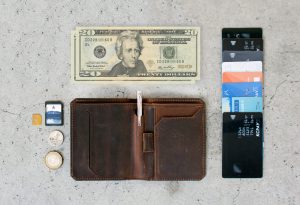Scam Prevention Protecting Yourself from Retail Fraud
In today’s digital age, the convenience of online shopping has become a staple for many consumers. However, with this convenience comes the risk of falling victim to retail fraud. Scammers are becoming more sophisticated and creative, making it challenging to spot fraudulent activities. As a result, it is crucial to familiarize yourself with the various types of retail fraud and learn how to protect yourself from becoming a victim. In this article, we will discuss scam prevention and how to safeguard yourself against retail fraud.
Types of Retail Fraud
Credit Card Fraud
Credit card fraud is the most common type of retail fraud and occurs when someone uses your credit card or credit card information without your authorization.
A common form of credit card fraud is when scammers obtain your credit card information through hacking or phishing scams. They may then use this information to make purchases online or create counterfeit credit cards to make in-store purchases. Additionally, scammers may also call or send fake emails, pretending to be from your credit card company, requesting your personal information.
Another type of credit card fraud is when a retailer’s employees steal customers’ credit card information and use it to make fraudulent purchases. This is why it is essential to monitor your credit card statements and keep your credit card information safe.
Account Takeover Fraud
Account takeover fraud occurs when a scammer gains access to your online shopping account and makes unauthorized purchases. This can happen when you use weak passwords or when scammers use phishing emails to obtain your login credentials.
Account takeover fraud can also occur when your device or the retailer’s website is not secure. Scammers can use malware to steal your login information and access your account without your knowledge.
How to Protect Yourself from Retail Fraud
Be Mindful of Emails and Calls
Be cautious of any unfamiliar emails or calls claiming to be from your credit card company, retailer, or delivery service. These may be phishing attempts to obtain your personal information. If you receive such emails or calls, do not provide any personal information and contact your bank or the company directly to verify the legitimacy of the message or call.
Secure Your Online Shopping Experience
Ensure that your device and internet connection is secure when making online purchases. Avoid using public Wi-Fi networks, as these are vulnerable to hacking. Also, make sure the retailer’s website is secure by looking for a padlock symbol in the address bar.
Furthermore, it is essential to create strong and unique passwords for your online shopping accounts. This will make it harder for scammers to access them.
Monitor Your Credit and Bank Statements
Regularly check your credit and bank statements for any unauthorized or suspicious transactions. If you notice any, report them to your bank or credit card company immediately.
You can also sign up for fraud alerts with your bank or credit card company. They will notify you of any unusual activity on your accounts, allowing you to take immediate action.
Research the Retailer
Before making a purchase from an online retailer, do some research to ensure they are a legitimate and reputable company. Look for customer reviews, check their social media pages, and see if they have a physical address and contact information. If a deal seems too good to be true, it probably is, and it may be a scam.
In Conclusion
The rise of retail fraud emphasizes the importance of being vigilant and proactive in protecting yourself when shopping online. By being mindful of emails and calls, securing your online shopping experience, monitoring your statements, and researching the retailer, you can prevent yourself from falling prey to retail fraud. Always remember, if something feels off or too good to be true, it’s best to be cautious. Stay safe and protect yourself from retail fraud.










